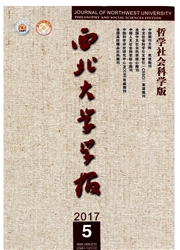

 中文摘要:
中文摘要:
代际社会流动率是衡量社会公平的一个重要指标,而教育在现代社会的代际流动中起着非常重要的作用.高校招生规模的扩大(简称“扩招”)通常被认为可增加农村地区或社会下层子弟接受高等教育的机会,增强代际社会流动,从而促进社会的机会平等.但是,本文通过对全国综合调查(CGSS)数据的综合分析,研究发现高校扩招后代际间社会流动尤其是农村以及处于社会下层子弟的向上流动并未发生明显改善.高校扩招后的社会绝对流动率有所上升,但相对流动率仍保持不变.这表明,高校扩招虽然促进了整体国民教育水平的提高,但并未有效提升代际间社会流动.换言之,父代阶层地位对子代阶层地位获得仍然具有强有力的影响.
 英文摘要:
英文摘要:
The rate of intergenerational social mobility is an important indicator of social justice, and education plays a crucial role in intergenerational social mobility in modern society. It is held by conventional wisdom that the higher education expansion since 1999 increases the opportunities for students from rural areas or of lower socioeconomic status to receive college education, hence promoting social mobility and improving oppor- tunity equality. However, findings from our empirical analysis are at variance with this viewpoint. The analysis of the China General Social Survey (CGSS) data indicate that, after the college enrollment expansion, there has been no significant improvement in intergenerational social mobility. Whereas the absolute mobility rate has increased since the expansion of college enrollment, the relative mobility rate remains largely unchanged. This pattern suggests that while the expansion of college enrollment has given rise to increased national educa- tional level, its effect on improvement of intergenerational social mobility has been rather limited. In other words, the status of parent generation continues to exert strong influence on that of the children's generation.
 同期刊论文项目
同期刊论文项目
 同项目期刊论文
同项目期刊论文
 期刊信息
期刊信息
